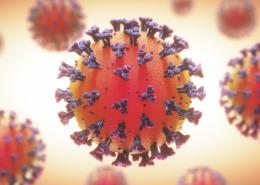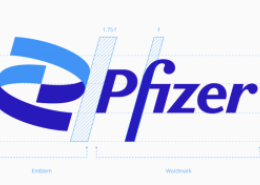Children's Hospital Boston and Pfizer enter into novel collaborative research agreement for muscular dystrophy therapeutics
Contact:
Keri Stedman
Children's Hospital
617A919A3110
keri.stedman@childrens.harvard.edu
Lauren Starr
Boston Pfizer Inc.
212A733A3221
Lauren.Starr@pfizer.com
Arrangement aims to accelerate development of new therapies through unique exchange of expertise in basic science and preclinical drug development
Boston, Mass. – Children's Hospital Boston and Pfizer Inc. (NYSE: PFE) have launched a new collaborative program aimed at identifying potential drug therapies for Duchenne muscular dystrophy (DMD). At the heart of the one-year collaborative research agreement is a novel exchange of expertise that brings the respective strengths of academia and industry together in a framework that could hold promise for benefitting DMD patients in the future.
The agreement focuses on the work of the laboratory of Louis Kunkel, PhD, Director of the Program in Genomics at Children's Hospital Boston and discoverer of the dystrophin gene that underlies the biology of DMD. In March 2011, Kunkel and colleagues announced the results of their efforts to screen 1,200 chemicals already approved for human use in a zebrafish model of DMD for any that might have a restorative effect on muscle tissue. Kunkel’s team – one of several at Children’s engaged in research on rare or orphan diseases – found that several had the desired effect in the zebrafish model, including compounds owned by Pfizer.
Through the agreement, Pfizer will, via its Orphan and Genetic Diseases Research Unit, provide Kunkel access to select proprietary compounds, as well as relevant data about these compounds. Pfizer is also committing internal resources to the project such as medicinal chemistry.
In collaboration with Pfizer’s Carl Morris, Ph.D., Kunkel’s laboratory will test the compounds provided by Pfizer in the DMD zebrafish model, with an eye toward identifying candidates for further preclinical development.
“This agreement brings together the best of two worlds, namely Pfizer’s ability to develop promising new compounds and our ability to test them in physiologically relevant models,” Kunkel said. “To have Pfizer show this level of interest in DMD is very exciting, and I am pleased to have this opportunity for us to put our complementary resources to work together.”
“Here at Children’s, we have the expertise in basic science and clinical care,” Kunkel continued, “but not the crucial chemical and development background that Pfizer has brought to the table.”
“We see this as a truly novel collaboration that combines the efforts of a worldAclass, academic DMD research laboratory with our chemical and preclinical expertise,” said Ed Mascioli, M.D., Vice President and Chief Scientific Office of Pfizer’s Orphan and Genetic Diseases Research Unit. “We are proud to be working with someone of Dr. Kunkel’s stature in the DMD research arena.”
“This agreement helps line up the pieces of the drug development pipeline for the benefit of children and adults with DMD,” said Erik Halvorsen, director of technology and business development for Children’s. “It is rare to see an industrial partner allow this kind of access, and we are very pleased to have established this novel arrangement with Pfizer.”
This is not the only research agreement to be signed by Pfizer and Children’s in 2011. In June, Pfizer announced that Children’s would be one of seven BostonAarea hospitals to join its Centers for Therapeutic Innovation, which aim to facilitate and support joint drug discovery and development, from the conception of an idea through early clinical trials. The DMD research agreement stands as a separate arrangement between Pfizer and Children’s.
Children’s Hospital Boston is home to the world’s largest research enterprise based at a pediatric medical center, where its discoveries have benefited both children and adults since 1869. More than 1,100 scientists, including nine members of the National Academy of Sciences, 11 members of the Institute of Medicine and nine members of the Howard Hughes Medical Institute comprise Children’s research community. Founded as a 20Ibed hospital for children, Children’s Hospital Boston today is a 396 bed comprehensive center for pediatric and adolescent health care grounded in the values of excellence in patient care and sensitivity to the complex needs and diversity of children and families. Children’s also is the primary pediatric teaching affiliate of Harvard Medical School. For more information about research and clinical innovation at Children’s, visit: http://vectorblog.org.








